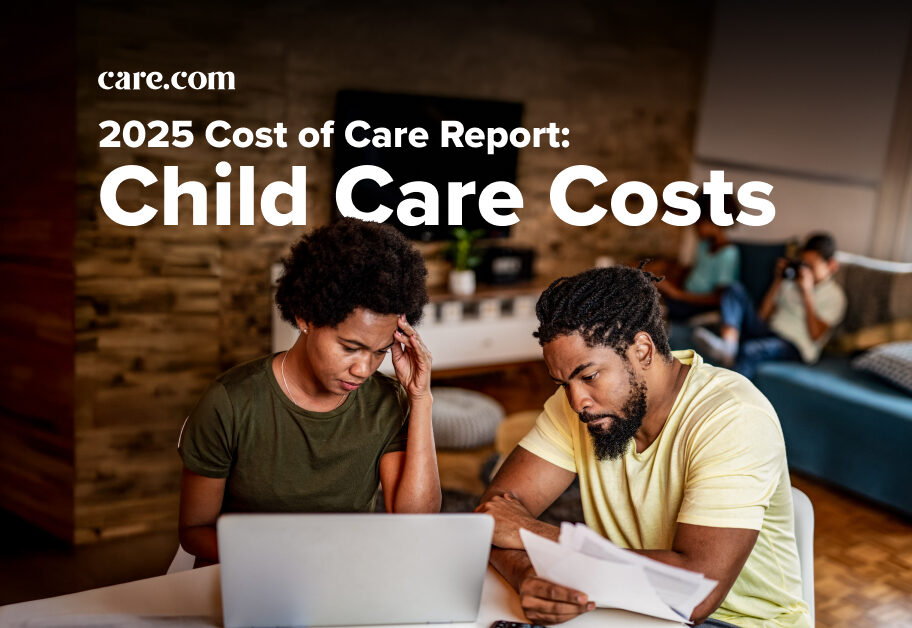Well before 2020 brought us COVID-19, protests against police violence, hurricanes, fires and an economic downturn, it was completely normal to feel stressed about politics. A study published last September in the journal PLoS ONE found roughly a fifth or more of 800 respondents reported losing sleep, being fatigued or suffering depression because of politics, and more than 11% said politics had hurt their physical health at least a little. Now, with the stakes feeling higher than ever, and the general election right around the corner, experts say everyone — especially parents and caregivers — are facing unprecedented levels of stress and anxiety.
Alyssa Westring, a doctor of industrial/organizational psychology, author of “Parents Who Lead: The Leadership Approach You Need to Parent with Purpose, Fuel Your Career, and Create a Richer Life” and mom of two, points out that parents and caregivers are worrying about what the future holds for children and loved ones, and everyone is biting their nails over issues like healthcare access, social justice and climate change, all of which stand to be affected by election results. But the common thread is uncertainty, a major trigger of stress.
“As a result of the pandemic, we are experiencing increased uncertainty related to financial security, education and employment, and even the health and safety of our family,” says Westring. “Perhaps even at an unconscious level, we believe that if we read the right news article, follow the right people on Twitter or analyze the situation in a new way, we’ll be able to understand what is going to happen in the election and why. Unfortunately, our current reality seems to be so unpredictable that these efforts lead to greater stress and frustration.”
Thankfully, there are concrete actions you can take to preempt stress before, during and after election night.
1. Check your news intake — and set boundaries
Although soaking up as much information as humanly possible — whether that entails “doom-scrolling” on Twitter or watching hour after hour of cable news — might feel like the best way to cope with uncertainty, that’s not necessarily the case. Westring encourages people to set boundaries around the amount of time you’re spending on these activities, which often serve to fuel versus cure our stress.
A couple of ways to do this:
Check yourself. “I’ve found that it’s helpful to ask yourself, ‘What will I do with this information if I receive it?’ If the information will help you make a more informed choice or motivate you to act — think register to vote, phone bank for a candidate — then it’s probably worth continuing. If it helps you feel a greater sense of solidarity or peace, that’s helpful too. If doom-scrolling won’t change your action and will actually make you feel worse, then this realization may make it easier for you to refocus your attention elsewhere.”
Schedule your news time. If you find that news or social media consumption is triggering your stress, schedule specific brief times in the day to catch up, suggests Dean McKay, a doctor of psychology and professor at Fordham University in Bronx, New York. “Usually all the key events of the day, even in very news-filled days, can be gathered in 30 minutes of watching the news,” he says. “By managing our consumption of these sources, it gives our automatic anxiety reaction system a chance to cool down. It also provides an opportunity to do things that will activate other pleasurable reactions. This leads to a lower stress level and a higher chance of processing news and election-related information calmly when encountered later.”
2. Reconsider that political conversation
The same goes for tense interactions with colleagues, friends or relatives. “You don’t have to engage in political discussions,” says Jonathan Alpert, a psychotherapist, author and performance coach who is licensed in New York, Pennsylvania, and Washington, D.C. “These can be contentious. Feel OK simply saying, ‘I prefer not to discuss politics’ and leave it at that.”
That said, there’s no one way to set boundaries, says Westring. You’ll want to do whatever works best for you and your family. And know that your game plan can be flexible, as you might want to set boundaries in a different way than how you will once we’re all in the throes of election week.
3. Choose activities that double as healthy modeling
Whether you’re a parent or caregiver, you’ll want to be conscious of the environment you’re creating for children who might be particularly sensitive to your stress, says Westring. That means engaging in healthy activities for coping with uncertainty — especially around kids. “Taking a walk, not bringing your phone into the bedroom at night and finding fun activities to do as a family will all be beneficial and help restore your resilience during this time,” she explains.
4. Plan ahead for the ramp up to the election
Accepting that you’ll likely be distracted the week of the election is a smart step to take now, says Westring. By doing so, you’ll be able to work ahead and/or set your schedule up in a way that feels less chaotic and allows room for stress management techniques and activities.
“If at all possible, try to proactively manage the other stressors that you’ll be facing that week,” she suggests. “If avoidable, for instance, don’t schedule an important meeting for election week. Or at home, try to arrange an outdoor playdate for your child in advance so that you’re not staying home glued to the TV.”
You might also find it reassuring to come up with a contingency plan that could be enacted if necessary. “For instance, in some places, it may be realistic to assume that there will be protests in your neighborhood,” says Westring. “So, a realistic plan might involve making sure that you have the diapers or medication you need in case stores or transportation shut down temporarily.”
5. Set realistic expectations about election results
Although we’ve been conditioned to expect a definitive election result on election night, it may be helpful to prepare for ongoing uncertainty around the results of the election for some time, says Westring. “Let your children know, too, that the election may not be resolved immediately,” she advises. “Remind yourself and your family that you have tolerated uncertainty for months and that you can and will continue to do so. Doing those things that help you and your family remain resilient and optimistic are incredibly important, especially when it feels very hard to do so.”
McKay acknowledges that if the results are contested, the temptation to stay glued to the news will be incredible. “As much as possible, it will remain necessary to manage this,” he says. “If it is impossible to take breaks, at the very least remember to practice breathing exercises to minimize the acute anxiety.”
One to try: Pause and take deep and gradual inhalations, followed by slow exhaling, preferably with eyes closed, for around 4 to 5 minutes. McKay explains, “This is helpful because it contributes to down-regulating the automatic reactions that lead to anxiety reactions.”
6. Think about how you’ll cope with an undesired outcome
Political anxiety often stems from a feeling that you’ll struggle to cope with an outcome you fear. An important way to manage this type of stress, according to McKay: Focus on how you’ll cope with an undesirable outcome. This can serve as a reassurance that you will, indeed, be able to get through it. He elaborates, “While one should still stand up for their values, they should also be prepared for how to handle the opposite outcome, visualize it and develop an action plan that might involve grassroots activism, engaging with elected officials or volunteering for candidates’ campaigns.”





